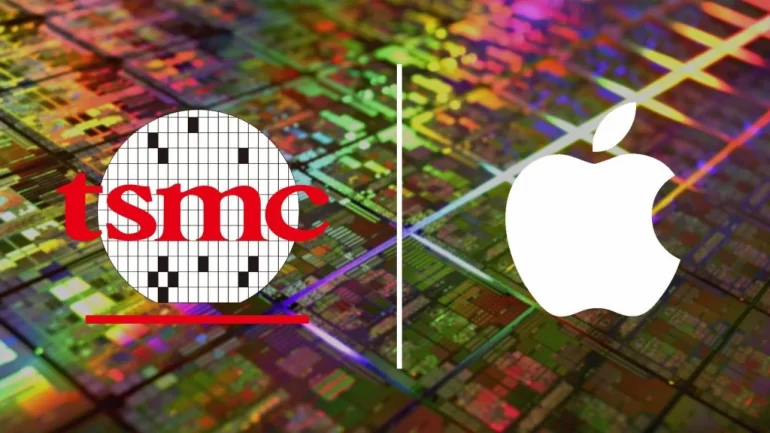There have been recent rumors that Apple has scaled back the amount of its order with TSMC. As the only supplier of Apple chips, the company’s decline in orders is a sign of the weakness of the world economy.
The orders that were canceled were for chips that would have been produced on TSMC’s N7, N5, N4, and even some N3 nodes.
Apple’s TSMC Chip orders
Currently, TSMC is the only company that is mass-producing chips using the 3nm process nodes.
The A17 Bionic, which will be used in Apple’s iPhone 15 Pro and iPhone 15 Ultra alongside the M2 Ultra and M3 chips, is anticipated to be manufactured using TSMC’s N3 (3nm) fabrication node.
Moreover, Intel decided to alter its roadmap and postpone receiving its 3nm orders in order to provide Apple with the majority of the 3nm production capacity later this year. Although there might not be a large number of orders given the cost, TSMC’s improved 3nm manufacturing node (N3E) could arrive this year.
It is important to note that wafer costs have significantly increased over time. In 2004, the price of 90nm wafers was roughly USD 2,000; in 2016, the price of 10nm wafers was USD 6,000; and in 2020, the cost of 5nm wafers was USD 16,000. 3nm chip wafer costs are currently in the USD 20,000 range.

Due to two advances, Intel has also declared that it will overtake TSMC and Samsung as the process leader by 2025. It will utilize the Gate-All-Around (GAA) transistors already used by Samsung under the name RibbonFET transistors and the PowerVia or backside power delivery capability.
This will allow transistors to obtain power from one side of a chip while using the other side to connect to data communication links.
The decline in Apple’s orders from TSMC is a result of the overall downturn of the world economy and the aftereffects of the chip scarcity from the previous year.
Again, TSMC is still the industry leader in chip manufacturing despite this, and their improved 3nm process node (N3E) may be introduced this year. By 2025, Intel is anticipated to overtake TSMC and Samsung as the process leader, in part because of the usage of RibbonFET transistors and the PowerVia feature.
It will be interesting to observe how these advances will impact the chip-making industry in the future as it is a sector that is always changing.
Started his freelancing adventure in 2018 and began doing freelance Audio Engineering work and then started freelance writing a few years later.
Currently he writes for Gadget Pilipinas and Grit.PH.
He is also a musician, foody, gamer, and PC enthusiast.












